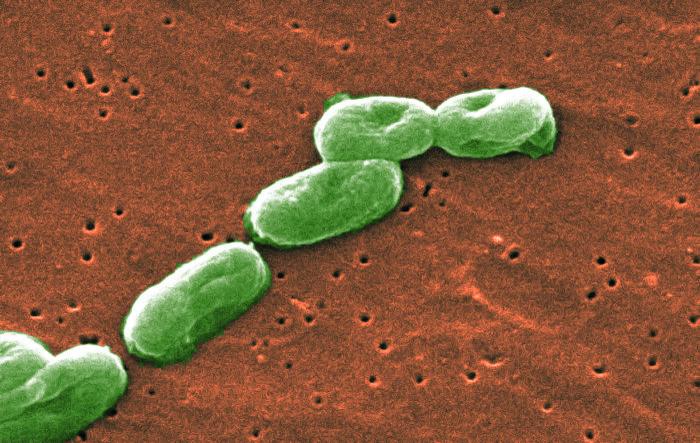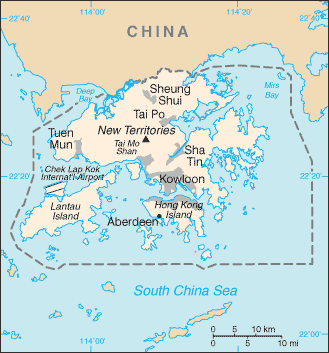NewsDesk @bactiman63
Hong Kong’s Centre for Health Protection (CHP) of the Department of Health (DH) announced three new confirmed melioidosis infection cases had been recorded in the past week (through December 23).

The patients live in Sham Shui Po and the CHP’s epidemiological investigations reveal that the cases’ onset dates were all between early September and early November.
The first case involves a 62-year-old male with multiple underlying illnesses including diabetes and coronary heart disease, who is also receiving dialysis for end-stage renal failure. He developed fever and a cough since September 2 and was admitted to the Caritas Medical Centre (CMC) after attending the Accident and Emergency Department (A&ED) of the hospital the next day. He was later discharged after his condition stabilised. He was hospitalised again on December 5 due to a persistent fever and was discharged on December 10. On December 15, he attended the A&ED of the CMC again, due to fever and abdominal pain, and was admitted. He is still hospitalised and his current condition is stable. His peritoneal dialysis specimen was confirmed positive for Burkholderia pseudomallei upon testing.
The second case involves an 80-year-old male with multiple underlying illnesses including impaired fasting glucose and hypertension. He developed chest pain since October 15 and attended the A&ED of the CMC on November 15, and the clinical diagnosis was pneumonia. Later, his chest pain worsened and fever developed, so he attended the A&ED of the CMC again on December 9 and was admitted. His condition has been stable all along and he was discharged on December 16. His sputum specimen was confirmed positive for Burkholderia pseudomallei upon testing.
The third case involves an 82-year-old male with multiple underlying illnesses including diabetes and paroxysmal atrial fibrillation. He developed shortness of breath since November 10 and attended a general out-patient clinic on December 5 due to a persistent cough. On December 8, his shortness of breath worsened so he attended the A&ED of the CMC and was admitted. His condition has been stable all along and he was discharged on December 16. His sputum specimen was confirmed positive for Burkholderia pseudomallei upon testing.

A total of 46 melioidosis infection cases have been recorded in Hong Kong so far this year, among which 30 cases living in Sham Shui Po were recorded since August.
A spokesman for the CHP reiterated that person-to-person transmission and animal-to-human transmission are rare, but melioidosis bacteria can survive in the local environment. Melioidosis is an endemic disease in Hong Kong and melioidosis cases have been recorded in Hong Kong each year. According to literature, infection cases are more common after typhoons or storms. The bacterium Burkholderia pseudomallei of melioidosis in soil and muddy water may become exposed to the ground after typhoons or storms, and the bacteria could spread more easily with strong winds or storms. As such, the number of melioidosis cases may increase.
Melioidosis is a disease caused by the bacterium Burkholderia pseudomallei. It can affect both humans and animals such as sheep, swine, cats, dogs, etc. This bacterium is widespread in soils and muddy water, particularly common in moist clay soils. It is endemic in Southeast Asia (e.g. Singapore and Thailand) and northern Australia.
Melioidosis may present with localized infection (such as cutaneous abscess), pneumonia, meningoencephalitis, sepsis, or chronic suppurative infection. Depending on the site of infection, common symptoms include fever, headache, localized pain or swelling, ulceration, chest pain, cough, hemoptysis, and swelling of regional lymph nodes.
Subscribe to Outbreak News TV on YouTube
Humans can become infected through contact with contaminated soil and surface waters (especially through skin abrasions/wounds); inhalation of contaminated dust/water droplets; and ingestion of contaminated water. Person-to-person transmission is rare but may occur through contact with the blood or body fluids of an infected person.
Persons with underlying diseases including diabetes, lung disease, liver disease, renal disease, cancer, or immunosuppression have higher risks for contracting the disease. Agricultural, laboratory and health-care workers are also vulnerable to occupational exposure.
The incubation period varies, usually from 2 to 4 weeks, but can range from 1 day to few years.
Melioidosis can be treated with antibiotics. Long-term treatment may be necessary for some chronic infection cases. Mortality rate ranges from around 40-75%.
Anthrax cases reported in Cagayan: Philippines media
South Korea reports 1st Naegleria fowleri case in man returning from Thailand
Vietnam: Dengue cases top 350,000, 50 leprosy cases reported in 2022
Japan sees syphilis cases top 12,000 in 2022

